●
- April 9, 2021
In recent years, doctors have begun to prescribe Seroquel for sleep. What is the clinical evidence behind Seroquel for insomnia, and is it effective? Learn more
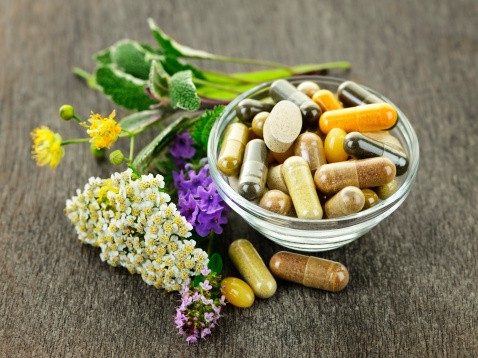
There are lots of natural supplements that you can try to help you get to sleep faster and stay that way through the night. Today, we’ll discuss these natural supplements for sleep to help you decide which is best for you.
Did you know that over 60 million Americans suffer from poor quality sleep? So, you are not alone if you’re having problems drifting into a nourishing and peaceful slumber.
And sleep disturbances are more than just an inconvenience that leaves you feeling exhausted the next day. These problems can also affect your physical, emotional, and mental health. In fact, it can negatively affect your mood, memory, and concentration and is known to increase your risk of developing type 2 diabetes, obesity, high blood pressure, depression, and heart disease.
The good news is that you don’t always need to turn to prescription pills for relief. There are lots of natural supplements that you can try to help you get to sleep faster and stay that way through the night. Today, we’ll discuss these natural supplements for sleep to help you decide which is best for you.
There are lots of natural supplements that work as effective sleep aids, but these are the ones that most people recommend:
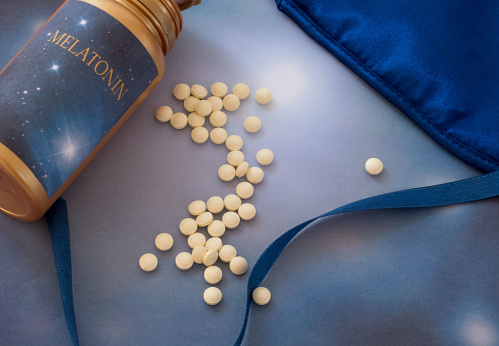
The most popular natural sleep aid on the market is melatonin. It’s been shown to be highly effective in helping adults and children induce and maintain sleep. It’s thought that melatonin works best when the body’s natural melatonin levels are decreased; therefore, using this supplement by those over 40 is considered very beneficial.
One of the best things about taking this natural supplement for sleep is that adults only need between 3 and 5 mg. Children over the age of six only require doses of between 1 and 3 mg. Just keep in mind that while melatonin works well and has no severe side effects, it could potentially disrupt your natural circadian rhythm if you take above the recommended doses. So, stick to recommended dosage guidelines unless you are otherwise prescribed a higher amount by a health professional.

L-theanine is an amino acid that’s usually found in tea. Many clinical studies have found this supplement to be beneficial for everything from relieving symptoms of post-menstrual syndrome and reducing caffeine’s effects on the body to improving sleep quality and heightening mental clarity.
Perhaps one reason it’s so popular as a natural supplement for sleep is that it’s excellent for both adults and kids. Children usually do great with a 200 mg dose at bedtime, but adults will require around 600 mg for soothing effects. Though, at 200 mg, this is still sufficient for adults to improve their sleep quality.
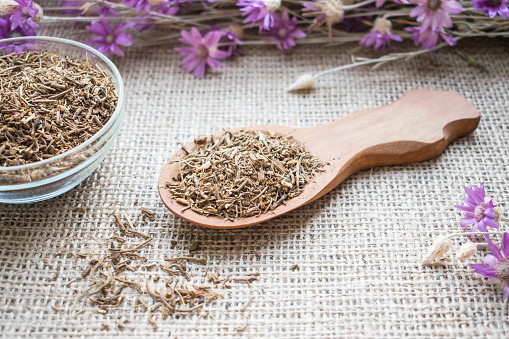
Valerian root is a herbal supplement that’s commonly used as a base for tea or a supplement for relaxation and sleep. According to The Sleep Foundation, this herb has been found to safely improve both rest and relaxation, but it should be used with care. So, it’s not recommended for long-term use or in combination with other sedatives, anti-anxiety drugs, or sleep aids.
While safe and effective when used correctly, valerian root features sedative properties that are unlike other natural supplements for sleep, like melatonin or magnesium. What makes it different? Well, while valerian root is beneficial in relieving sleep issues, it can leave users feeling drowsy the next day.

Glycine is an amino acid and neurotransmitter, and the body produces this substance on its own. And when it comes to getting additional glycine, supplement form isn’t the only way we get. We actually consume it in certain types of food that are high in protein, such as eggs, meat, legumes, fish, and dairy. To give you an idea, your typical daily diet contains just 2 grams of glycine.
When taken as recommended, this natural supplement can help you achieve healthier sleep cycles and improve the symptoms associated with insomnia. Recent studies have shown that it works by reducing the body’s temperature, allowing you to fall asleep faster and get more REM sleep. Glycine has also been shown to help users transition into slow, deep wave sleep more quickly.

Next on our list of the best natural supplements for sleep is magnesium. It induces calming feelings that increase relaxation and decrease stress, promoting a more restful slumber. And as a mineral naturally found in our foods, it’s vital for overall body function.
Magnesium is proven to help your body improve and repair nerve function, which alone will help with a person’s quality of sleep. Though magnesium is found in many foods, including leafy vegetables and whole grains, many people may not get the daily recommended value. This is especially common in those who are elderly. If you’d like to try magnesium as a sleep aid, the recommended dose is 200 mg, and it’s best to take about a half hour before bedtime. Just be sure not to exceed 200 mg per day.
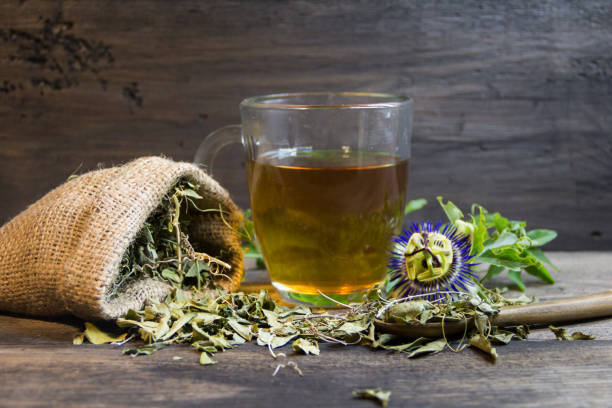
Passionflower is another powerful sleep supplement that’s been used as a natural sedative in places like Iraq, North America, Brazil, and Turkey. This herb functions by boosting your brain’s GABA production. Much like valerian root, it assists with relaxation, quiets brain activity, and helps with better sleep.
In clinical trials, passionflower has proven to effectively reduce anxiety in humans. In another study, those suffering from insomnia were shown to respond better to passionflower for enhanced sleep than the placebo. This sleep aid can be taken as a pill or served in tea.
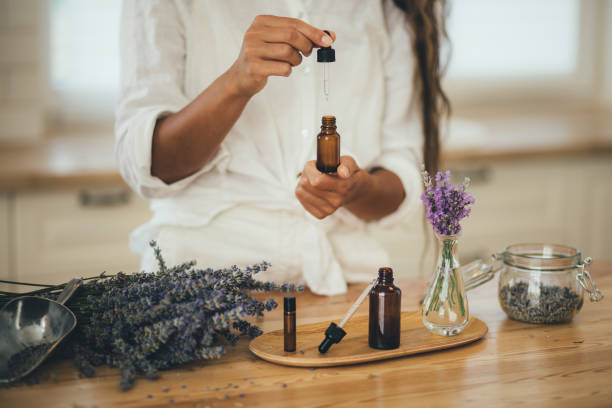
Lavender is a purple herb that’s been used for centuries to reduce anxiety and stress. It’s commonly used in tea and aromatherapy. And of all of the essential oils that claim to be sleep aids, lavender is the one most renowned for its calming effects.
Though studies on the effects of lavender on sleep are harder to come by than other natural supplements, a few studies have shown that just smelling lavender oil before bed can improve sleep quality.
For instance, one study conducted in Thai found that inhaling lavender oil reduces blood pressure, skin temperature, and heart rate, which leads to improved relaxation and a better quality of sleep.
In light of these findings, many people find that adding just a few drops of lavender oil to their pillow or diffuser before bed is enough to support a great night’s sleep!
Related Posts